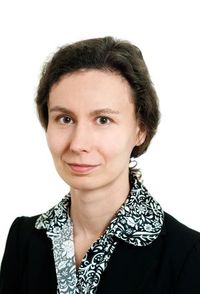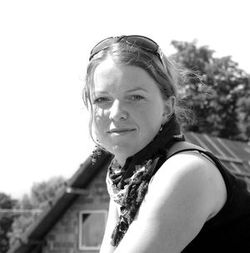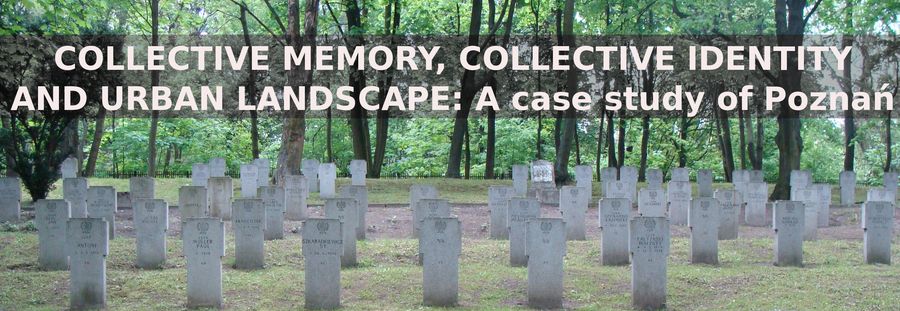People
 Małgorzata Fabiszak, primary investigator is a professor at the Faculty of English Adam Mickiewicz University in Poznań. In 2013-2015 she has worked as a visiting professor at the university of Vienna. Her research interests focus on (1) cognitive linguistics and (2) discourse studies. Within discourse studies she investigated the identity of Polish migrants in Britain and Ireland (“New discourses of migration in post-communist Poland...”, the representation of third-country nationals in EU media within the WU-financed project MEDIVA. In 2012 she has graduated from the post-graduate programme on History and Culture of the Polish Jews run by the Insitute of History, University of Warsaw.
Malgorzata Fabiszak is an author and editor of 4 books and numerous journal articles and book chapters. Her best known book is A Conceptual Metaphor Approach to War Discourse and Its Implications. (Poznań 2007).
Małgorzata Fabiszak, primary investigator is a professor at the Faculty of English Adam Mickiewicz University in Poznań. In 2013-2015 she has worked as a visiting professor at the university of Vienna. Her research interests focus on (1) cognitive linguistics and (2) discourse studies. Within discourse studies she investigated the identity of Polish migrants in Britain and Ireland (“New discourses of migration in post-communist Poland...”, the representation of third-country nationals in EU media within the WU-financed project MEDIVA. In 2012 she has graduated from the post-graduate programme on History and Culture of the Polish Jews run by the Insitute of History, University of Warsaw.
Malgorzata Fabiszak is an author and editor of 4 books and numerous journal articles and book chapters. Her best known book is A Conceptual Metaphor Approach to War Discourse and Its Implications. (Poznań 2007).
Wydawnictwo Naukowe UAM
Plik PDF w Repozytorium UAM
She is also a co-editor (with Marcinem Owsiński) of a book (in Polish) Obóz- muzeum. Trauma we współczesnym wystawiennictwie. [Camp-Museum. Trauma in contemporary exhibitions] Kraków: Universitas, 2013.
Title page and table of contents.
Introduction in Polish and English. Scroll down the document for the English version.
 Anna Weronika Brzezińska, PhD is the main researcher in the project. She works at the Institute of Ethnology and Cultural Anthropology at Adam Mickiewicz University in Poznań. Her research interests focus on cultural heritage, its social perception and protection as well as on increasing social and cultural participation of local communities.
In 2008-2011 she ran field research in the region of Żuławy, documenting various aspects of taming of the cultural landscape in a situation of broken cultural transmission. She is a memeber of the Polish Ethnological Society, Wielkopolska Cultural Society, and the Oskar Kolberg Institute in Poznań.
She is a member of editorial boards of the following journals: “Przegląd Wielkopolski” and “Łódzkie Studia Etnograficzne”. She collaborates with the Regional Culture Observatory. She is an expert of the Ministry of Culture and National Heritage (programmes “Folk Culture” and “Culture Observatory”) and the Municipal Council of Poznań (“Culture, art, protection of cultural and national heritage”).
She is a member of the Council for Intangible Cultural Heritage at the Ministry of Culture and National Heritage and of the policy council of the Wielkopolska Society of folk artists.
Anna Weronika Brzezińska, PhD is the main researcher in the project. She works at the Institute of Ethnology and Cultural Anthropology at Adam Mickiewicz University in Poznań. Her research interests focus on cultural heritage, its social perception and protection as well as on increasing social and cultural participation of local communities.
In 2008-2011 she ran field research in the region of Żuławy, documenting various aspects of taming of the cultural landscape in a situation of broken cultural transmission. She is a memeber of the Polish Ethnological Society, Wielkopolska Cultural Society, and the Oskar Kolberg Institute in Poznań.
She is a member of editorial boards of the following journals: “Przegląd Wielkopolski” and “Łódzkie Studia Etnograficzne”. She collaborates with the Regional Culture Observatory. She is an expert of the Ministry of Culture and National Heritage (programmes “Folk Culture” and “Culture Observatory”) and the Municipal Council of Poznań (“Culture, art, protection of cultural and national heritage”).
She is a member of the Council for Intangible Cultural Heritage at the Ministry of Culture and National Heritage and of the policy council of the Wielkopolska Society of folk artists.
In 2002 she has graduated from the Małopolska Folk University in Wzdów. She is an instructor of handicraft and has completed courses in weaving, wickerwork, lacemaking and embroidery. She is the editor-in-chief of the Atlas of Polish Folk Costumes. Since 2013 she has been a primary investigator in a documentation project financed by the National Programme for the Development of Humanities.
In 2012 she completed a post graduate programme in Marketing of Culture at the Institute of International Relations of Warsaw University run in collaboration with the National Culture Centre in Warsaw.
She is an author of numerous articles and books about regional and cultural education and the social functioning of cultural heritage.
AMUR
 Polska wersja
Polska wersja


